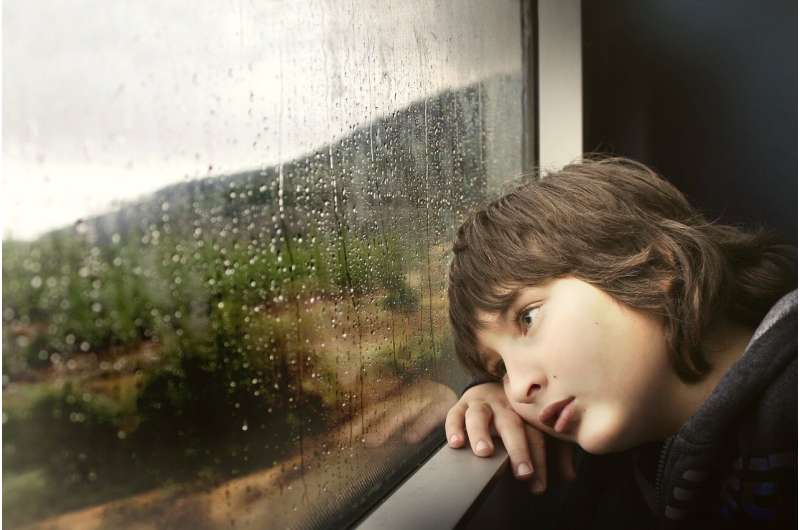This article has been reviewed according to Science X's editorial process and policies. Editors have highlighted the following attributes while ensuring the content's credibility:
fact-checked
peer-reviewed publication
trusted source
proofread
Developmental supports are crucial for young victims of child abuse, researchers say

In a study published in Child Abuse & Neglect , researchers at the University of South Australia highlight the urgency of ensuring young victims of serious child abuse or neglect get the support they need prior to school commencement so that they can be as close to developmentally on track as possible.
Analyzing the records of nearly 75,000 South Australian children (born between 2003 and 2014; mean age of 5.7 years; 50.7% boys), researchers identified 1,345 who had suffered substantiated abuse before starting school, 666 of whom had entered foster, kinship (usually with grandparents) or residential care.
Assessing developmental outcomes for children with substantiated (proven) abuse or neglect (prior to them starting school) researchers found that some children were at high risk of being significantly delayed across all aspects of development prior to starting school.
However, for children removed into out of home care they were:
- 27% less likely to be vulnerable on physical health and well-being (including gross and fine motor skills, readiness for school, being tired or hungry);
- 21% less likely to be vulnerable on language and cognitive skills; and
- 19% were doing better in communication skills and general knowledge.
Yet it is also the case that children who were removed from their homes were more likely vulnerable in other areas:
- 14% were more likely to be very behind in social competence (how they get on with other children); and
- 20% were more likely to display poor emotional maturity (ability to control their emotions, sense of well-being).
The study found that young boys, in particular, fare far worse than girls, and are more likely to be vulnerable on every developmental domain, at every level of child protection concern.
For example, from 2009 to 2018, 44% of young boys with substantiated child abuse were emotionally vulnerable, compared with 21% of girls with substantiated child abuse, and 14% of boys with no child protection contact.
Senior researcher, UniSA's Professor Leonie Segal, says more must be done during the first five years to help children with serious child protection concerns, to be developmentally on track, especially boys.
"Being developmentally behind at the start of school is a predictive indicator of poor educational outcomes. It is also likely associated with poor emotional and social outcomes as a teenager or young adult," Prof Segal says.
"If we don't identify and respond to these risks early in life, these children will grow up within and perpetuate cycles of disadvantage.
"Placement in out-of-home care may better meet a child's basic needs—for good nutrition, access to health care, sleep, and offer a more enriching and nurturing environment. It also improves access to schooling, with lower levels of absenteeism and truancy.
"But while our research suggests that out-of-home placement supports physical, communication and cognitive development, children's social and emotional development may be compromised."
UniSA researcher and Ph.D. candidate Krystal Lanais says the research highlights the acute need for professional therapeutic support for children in care.
"Removing a child from their birth family, in over-riding parental rights, and separating children from their parents, is a serious and costly undertaking—and a last resort to address the most serious child safety concerns," Lanais says.
"And yet, it cannot be expected that out-of-home care will resolve deep-seated serious early life trauma, evident in social and emotional distress, without professional support.
"This work confirms the unmet developmental needs in children with serious child protection concerns, and the urgency to provide appropriate, intensive services before school commencement, to give these children the best chance in life."
Noting the current policy and funding push to expand access to early childhood education and care (ECEC) across Australia, this research underlines the urgency of ensuring these most vulnerable children, who are known to services have priority access to the highest quality, trauma-aware ECEC.
More information: Krystal Lanais et al, Investigating the impact of Out-of-Home Care on early childhood development, Child Abuse & Neglect (2024). DOI: 10.1016/j.chiabu.2024.106856




















